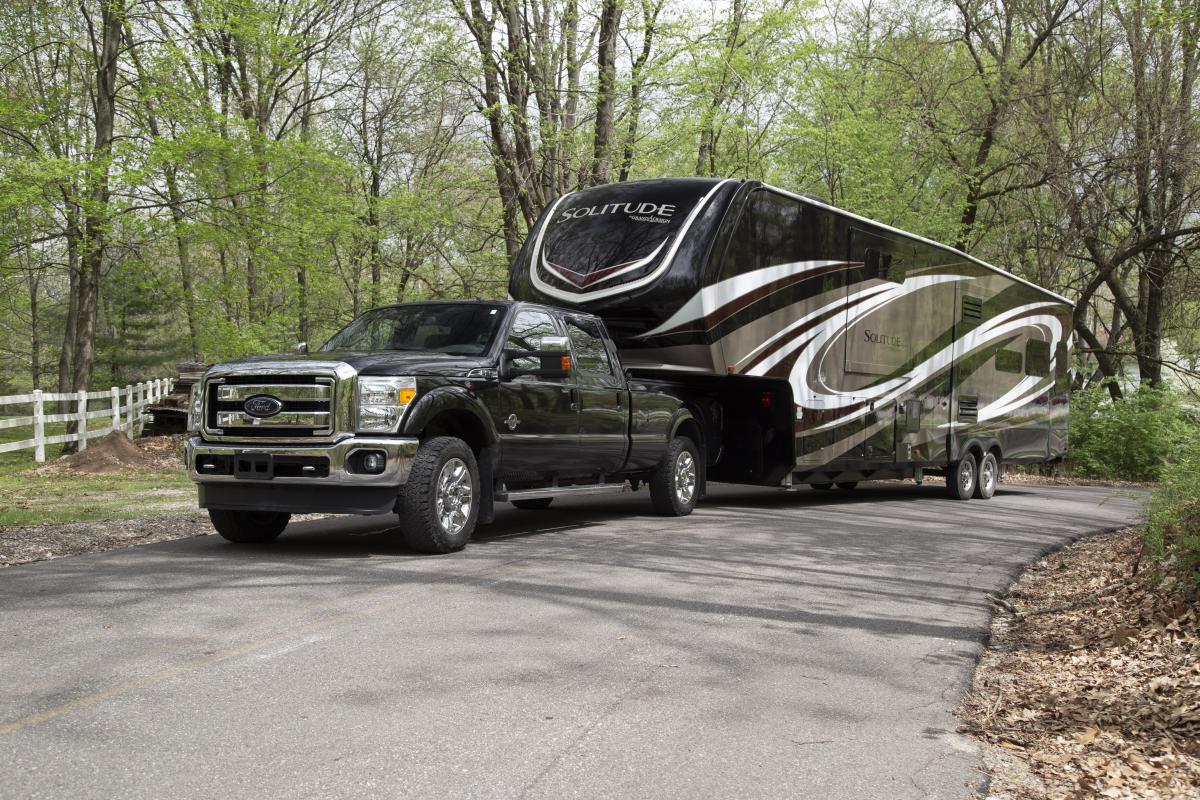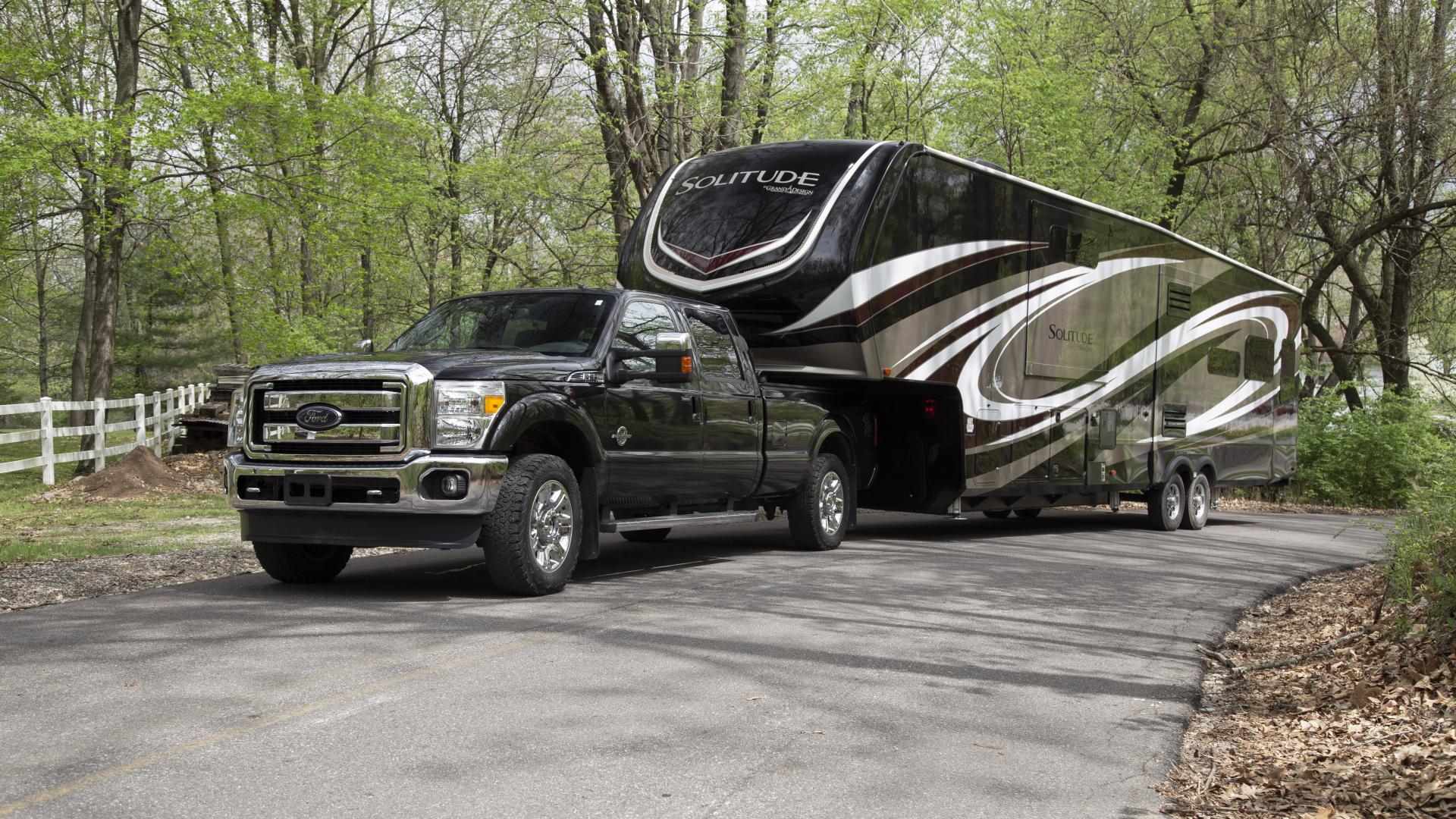How To Avoid The Dangers Of An Overweight Trailer
Do you need to lose trailer weight?
According to the RVSEF, about 60% of travel trailers exceed their maximum weight capacity. A couple extra pounds may seem like a minor problem, but the truth is that excessive trailer weight is responsible for the majority of RV safety issues.
How To Find Out If You’re Overweight
The first step is to find out if your trailer is truly overweight.
Check the GVWR (Gross Vehicle Weight Rating) and GCWR (Gross Combined Weight Rating) in your tow car’s manual to determine the maximum weight your vehicle can handle, including itself and its passengers.
Also note your trailer’s GVWR, which is often found in the user manual or printed inside the trailer. When you have these numbers, you need to take your vehicle and trailer to a weighing station.
The most accurate method of weight measurement is wheel position weighing, which determines how much weight is resting on each of the vehicle’s wheels. This allows you to see if the trailer’s weight is unevenly distributed. Only a few companies offer wheel position weighing, but many of them travel the country. If you’re willing to pay the $75 for an accurate measurement, you can make an appointment online.
A cheaper and more convenient way to get a semi-accurate weight measurement is by using a certified CAT scale, found at many truck stops. These cost about $10 the first time you measure, and only a couple dollars each time afterward.
CAT scales take an axle-by-axle reading, which still gives you a good idea of your trailer’s weight. Just make sure it falls far below your trailer’s GVWR. You can also use a CAT scale to weigh your tow vehicle and make sure that the weight of your car doesn’t exceed its limits.
After weighing your vehicle and tow trailer, you can add the two weights together and compare it to your car’s GCWR. This will tell you if your vehicle is able to tow your trailer.


Dangers Of Traveling With An Overweight Trailer
If your trailer’s weight (including all cargo and passengers) exceeds its maximum capacity, driving with the trailer attached is a huge risk. Overweight trailers put more pressure on the wheels and axles than they are designed to handle, which can cause tire blowouts or trailer sway.
Excess weight causes tires to wear more quickly and makes it harder to stop the vehicle.
If your vehicle is involved in an accident, you will be liable. Insurance companies will be less likely to help pay for damages. Police officers can also pull you over and give you a hefty fine if they suspect that your trailer is overweight.
In other words, traveling with extra weight just isn’t worth the issues that it can cause.
How To Lose Weight
Obviously, you can’t throw out large items like your mattress or toilet, but you might be surprised at how much you can downsize by paying attention to the small things in your trailer.
Every time you buy a souvenir, a decoration, or even a storage basket, you add weight to your trailer. These tiny amounts really add up, so consider getting rid of some of the extra stuff. Ask yourself which items you need to keep, and which ones you hardly ever use. This could be clothing, extra bedding, unnecessary dishes, or the camp stove you never cook with.
Be frugal with what you decide to buy and keep the weight of your trailer in mind.


Top Tips For Trailer Weight
- Fill it up: Keep in mind that water, propane, and fuel add extra weight. Fill all your tanks before weighing for an accurate measurement.
- Weigh in advance: Don’t wait until the day you start a long trip to weigh your trailer. Give yourself time to make adjustments and make an appointment at a weighing station if you need to.
- Balance your weight: Even if your trailer falls within the weight limits, too much weight on one side can cause a serious accident. Rearrange your things to evenly distribute their weight.
- Leave room to grow: Don’t go traveling with a trailer that falls just a pound or two under the weight limit. Leave as much room as possible in case you absolutely have to add something.
- Weigh your stuff: When packing your trailer, consider stacking food, clothes, and anything else that you’re bringing in a cardboard box and weighing it on a bathroom scale. This can give you an idea of how many pounds you’re adding.
Overweight trailers may seem like a small problem, but surpassing your vehicle’s maximum capacity can be disastrous. Pay attention to your trailer’s weight and stay safe on the road.
***
*Redacted from the published piece by RV Life, by Ella Emsheimer. July 2018
The post How To Avoid The Dangers Of An Overweight Trailer appeared first on Roaming Times.
- Log in to post comments














